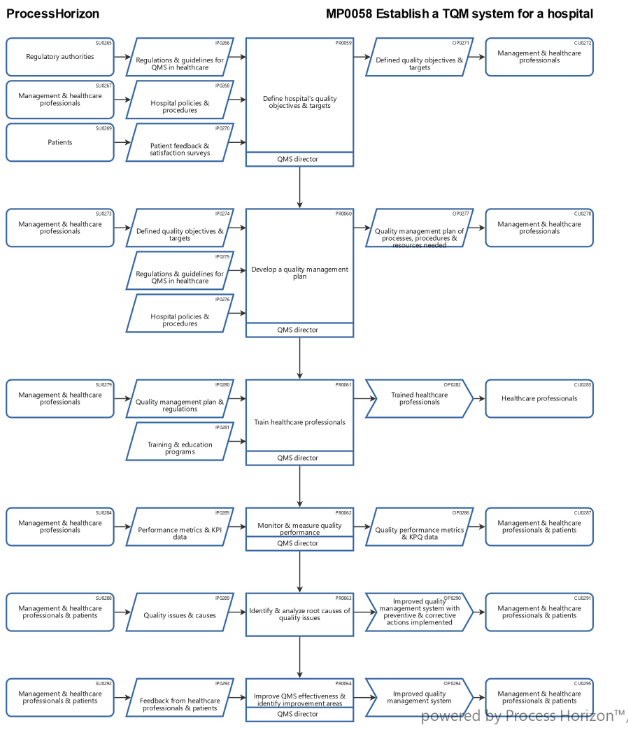Establish TQM for a healthcare provider

The goal of Total Quality Management (TQM) for a healthcare provider like hospitals is to provide high-quality healthcare services that meet or exceed the expectations of patients and other stakeholders, while also improving operational efficiency and reducing costs. TQM is a management philosophy that emphasizes continuous improvement, teamwork, and a customer-focused approach to service delivery.
Some of the key performance indicators (KPIs) and key quality indicators (KQIs) that hospitals may use to measure the effectiveness of their TQM systems and ensure high-quality healthcare include:
- Patient satisfaction: This KPI measures the level of satisfaction that patients have with the quality of care, treatment, and services they receive at the hospital. Patient satisfaction can be measured through surveys, feedback forms, and other means.
- Clinical outcomes: This KPI measures the effectiveness of medical treatments and interventions in achieving positive health outcomes for patients. Examples of clinical outcomes include mortality rates, readmission rates, and infection rates.
- Process efficiency: This KPI measures the effectiveness and efficiency of hospital processes and operations, such as patient flow, appointment scheduling, and inventory management. Process efficiency can be measured using metrics such as waiting times, turnaround times, and resource utilization.
- Employee satisfaction: This KPI measures the level of satisfaction that employees have with their work environment, job duties, and organizational culture. Employee satisfaction can be measured through surveys, feedback forms, and other means.
- Compliance with regulations and standards: This KPI measures the hospital's adherence to regulatory requirements and quality standards, such as those set by the EU and national healthcare authorities. Compliance can be measured through audits, inspections, and other means.
- Financial performance: This KPI measures the hospital's financial health and sustainability, including revenue, expenses, and profitability. Financial performance can be measured using metrics such as operating margin, net income, and return on investment.
These KPIs and KQIs can help hospitals to identify areas for improvement, track progress, and continuously enhance the quality and efficiency of their healthcare services.
Explore the smart ProcessHorizon web app https://processhorizon.com

